Plenary line-up
The daily plenary sessions feature some of the world’s most distinguished HIV scientists, policy specialists, and community leaders. Plenary sessions bring all conference delegates together at the first session of every morning.
Tuesday, 24 July 2018 - Breaking barriers of inequity in the HIV response
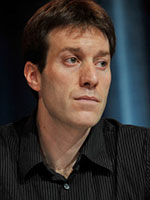
The epidemiology and vulnerability of missing and indigenous populations
Stefan Baral, United States
Stefan Baral is a Physician Epidemiologist and Associate Professor in the Department of Epidemiology at the Johns Hopkins School of Public Health. He trained in community medicine at the University of Toronto as a Fellow of the Royal College of Physicians and Surgeons of Canada, and Family Medicine with the Canadian Council of Family Physicians.
As Director of the Key Populations Program in the Center for Public Health and Human Rights, Stefan works to understand why people continue to be at risk for acquiring and transmitting HIV. He looks particularly at the interactions of structural and network-level determinants with individual-level proximal risks for HIV infection. With colleagues, Stefan focuses on using available scientific tools to characterize the distribution of HIV risks, including in countries with broadly generalized HIV epidemics. This has included studying the burden of HIV and HIV-related vulnerabilities among gay, bisexual and other men who have sex with men, transgender women, people who use drugs, and sex workers in a range of HIV epidemic settings. Stefan has participated in advancing the standardization of methods and measures in HIV-related implementation research to study how best to implement programmes serving marginalized communities. Stefan’s work is guided by the hypotheses that HIV is not Zika and the world is more similar than it is different.
Exploring innovation around HIV and substance use
Anna Deryabina, Kazakhstan
Anna Deryabina is a Regional Director for Central Asia at ICAP, Columbia University. Here, she manages a PEPFAR/CDC-funded project that works closely with ministries of health and local healthcare providers to improve HIV prevention and treatment programmes and strengthen strategic information systems in Kazakhstan, Kyrgyzstan and Tajikistan. She also serves as a technical lead on a CDC-funded infection prevention and control project in Georgia.
Anna is a medical doctor trained in internal medicine. She also holds a doctorate degree in public health focused on health policy and management. Her areas of professional interests include HIV programming for key populations, monitoring and evaluation, quality improvement and health system strengthening.
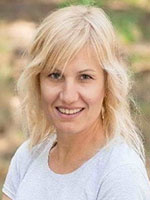
Olena Stryzhak, Ukraine
Olena Stryzhak has been living with HIV for 17 years. She is a representative of the community of women who use drugs and represents the Eastern Europe and Central Asia region in the International Community Women Living with HIV. Olena is a founder of the Eurasian Women’s Network on AIDS and the head of the Cherkasy division of the Network of PLHIV, Ukraine. Olena was a speaker at AIDS 2006, AIDS 2008, AIDS 2010, AIDS 2012 and AIDS 2016. Her team was awarded the Red Ribbon Award when she spoke at the Global Village in AIDS 2014. Olena also chairs the Board of the charitable organization, Positive Women Network, in Ukraine.
In 2000, the thought of getting involved in social activism had not crossed her mind. She was 21 years old, pregnant and starting at a trade firm after graduating from college. Then, at a routine pregnancy check up, she learned that she was HIV positive. As there was no antiretroviral treatment in Ukraine then, doctors advised pregnant HIV-positive women to abort. Olena decided to keep her baby. A year after delivering her baby, psychologists from the AIDS centre suggested that she create a support group. A few months later, she met a team from the All Ukrainian Network of People Living with HIV/AIDS and started working with them, becoming head of the Cherkasy regional branch of the network in 2004. “I wanted to give women inspiration, to make them know about their rights and help them gain confidence and motivation,” Olena explains.
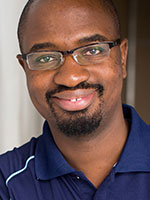
Putting HIV science into the criminal justice system: Impacting lives
Allan Maleche, Kenya
Allan Maleche is the first Executive Director of Kenya Legal and Ethical Issues Network on HIV and AIDS (KELIN). He is a dynamic leader in the field of human rights-based approaches to health planning, programming and service delivery and global health governance. Although his work has focused on HIV and tuberculosis in Kenya, Allan has also fought to promote and protect sexual and reproductive health rights, the rights of key populations and the rights of Kenyan widows and their children to inherit and own property. In Kenya, Allan has used the legal framework to safeguard the rights of people and communities affected by HIV and TB through litigating landmark cases, including Daniel Ng’etich and Others v The Honourable Attorney General and Others, which successfully argued against incarceration of persons with tuberculosis as a public health measure; KELIN and Others v The Cabinet Secretary, Ministry of Health and Others, which overturned a directive by the President requiring real-name registration of children living with HIV; and Petitions 605 and 606 of 2014 on forced and coerced sterilisation of women living with HIV.
Allan also is currently the Board Member of the Developing Country NGO Constituency of the Global Fund Board. He was formerly the Alternate Board Member of the same constituency and the previous Chair of the Implementers Group of the Global Fund Board, comprised of ten diverse government and civil society constituencies worldwide.
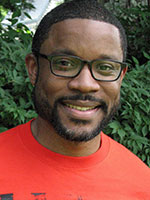
Robert Suttle, United States
Robert Suttle has been living with HIV for 15 years. He is the Assistant Director of The Sero Project, where he oversees community outreach and education and coordinates Sero’s HIV Criminalization Survivors Network through support and engagement with those who have been prosecuted or at greatest risk of prosecution. Suttle is a Louisiana native and graduate of Louisiana State University in Shreveport, where he received his Bachelors of Science degree in business administration and management. He then embarked upon a career in the judicial system, working for the Louisiana Second Circuit Court of Appeals, which abruptly ended when his life was nearly destroyed by a grossly unjust HIV prosecution and conviction. Instead of retreating, shortly after his release from prison in January 2011, he quickly embraced HIV criminal law reform with a passion and clear-eyed conviction that our level of awareness determines our destiny.
Prior to joining Sero in March 2012, Robert previously worked with other young Black and gay men living with HIV as a case manager and prevention specialist at the Philadelphia Center in Shreveport, Louisiana.
Wednesday, 25 July 2018 - Building bridges from scientific innovation to implementation
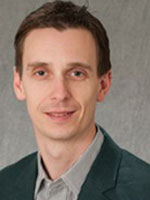
The newest science in the search for a cure and vaccine
Brad Jones, United States
Brad Jones joined George Washington University in May 2015 as Assistant Professor in the Department of Microbiology, Immunology and Tropical Medicine and Weill Cornell Medicine as of July 2018. He received his PhD in immunology from the University of Toronto, where he studied the cellular immune response to HIV infection, and continued this work as a postdoctoral fellow at the Ragon Institute of the Massachusetts General Hospital, Massachusetts Institute of Technology and Harvard.
His current research is focused on understanding how to maximally harness the “cytotoxic T-cell” arm of the immune system to contribute to the elimination of the HIV reservoirs that persist in individuals on long-term therapy, and thus to inform efforts to cure infection. This work is conducted primarily in the context of the NIH-funded Martin Delaney “BELIEVE” collaboratory, for which Brad serves as an Executive Committee member.
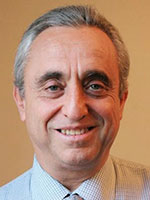
ART 2018 – Moving into the integrase era
Pedro Cahn, Argentina
Pedro Cahn has been working on infectious diseases for 40 years and has been involved in the HIV/AIDS arena since 1982. He is Professor of Infectious Diseases at the Buenos Aires University Medical School. He has served as Chief of Infectious Diseases at the Juan Fernandez Hospital in Buenos Aires, Argentina, where he is now Senior Consultant. And he is Scientific Director at Fundación Huésped, the largest NGO in Argentina, serving patients with and at risk of HIV/AIDS. Pedro’s team has contributed to identifying new treatment strategies, in particular promoting research on dual therapy.
Pedro, a Past President of the International AIDS Society, is Co-Chair of CCASANET, the Caribbean, Central and South America network, a cohort part of the International Epidemiologic Databases to Evaluate AIDS (IeDEA) and investigator with the International Maternal Pediatric Adolescent AIDS Clinical Trials (IMPAACT) network. He has served as external advisor for UNAIDS, the World Health Organization (WHO), the Pan-American Health Organization (PAHO), UNITAID and Doctors without Borders. He is as a member of the WHO antiretroviral guidelines panel, Chair of the Treatment Advisory Group at PAHO and a former member of the guidelines panel of the International Antiviral Society-USA. He is part of the Technical Advisory Committee on HIV at the National AIDS Program in Argentina. He has served as external advisor for ARV guidelines panels in Mexico, South Africa and Uruguay. Pedro has published more than 200 peer-reviewed papers and book chapters.
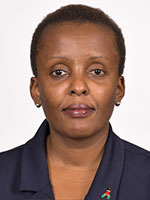
Differentiated models of prevention
Nduku Kilonzo, Kenya
As the Chief Executive Officer of the Kenya National AIDS Control Council, she is responsible for policy guidance and tracking progress and overall results in Kenya’s HIV response, as outlined in its HIV Strategic Framework. She is also responsible for driving the National AIDS Control Council mandate while observing institutional accountability and compliance.
Through her HIV work in Kenya and membership in global technical and leadership forums and commissions, Nduku has made contributions that earned her acknowledgement in the Millennium Development Goal 6 Global Report. She is the Chair of the Kenya HIV Inter-Agency Coordinating Committee and a Commissioner of the IAS-Lancet Commission on the future of the HIV response and global health.
Nduku holds a PhD in tropical medicine from the Liverpool School of Tropical Medicine. With more than 15 years in public health, her professional experience spans government, the UN and non-government sectors. She has led policy and project development and implementation of innovative HIV and gender-based violence prevention and control programmes in Kenya, Malawi, Botswana and Cote d’Ivoire. An avid reader and principal or co-investigator in many studies, Nduku has had more than 30 peer-reviewed publications in high-impact factor journals, commissioned reports and book chapters in the areas of HIV prevention and control for Africa, and numerous conference presentations.
Thursday, 26 July 2018 - Breaking barriers and building bridges between our responses toward universal health
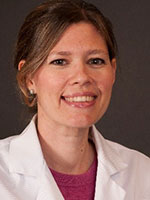
Understanding the intersecting syndemics of communicable and non-communicable diseases
Emily Hyle, United States
Emily Hyle is a Clinician-Investigator in the Division of Infectious Diseases at the Massachusetts General Hospital and Assistant Professor of Medicine at Harvard Medical School. She attended the University of Pennsylvania School of Medicine and completed her clinical training and chief residency at the Massachusetts General Hospital with additional training in epidemiology at the Harvard T.H. Chan School of Public Health. As a member of the Cost-effectiveness of Preventing AIDS Complications (CEPAC) research team, her research focuses on using simulation modelling and cost-effectiveness analysis to investigate clinical and public health interventions for people with HIV.
Funded by the National Institutes of Health (NIH), Emily has led and contributed to model-based analyses that include studies on HIV and non-communicable comorbidities, HIV drug resistance, laboratory monitoring, point-of-care testing and loss to follow up. Her research is cited in the US Department for Health and Human Services Guidelines for the Use of Antiretroviral Agents in HIV-1-Infected Adults and Adolescents, as well as the World Health Organization (WHO) Consolidated guidelines on the use of antiretroviral drugs for treating and preventing HIV infection. She was a member of the Guidelines Development Group for the WHO public health response to HIV drug resistance, and has been an invited speaker at the NIH and WHO on issues regarding resource utilization and cost effectiveness. As a practicing physician, she provides clinical care for people with HIV and other infectious diseases.
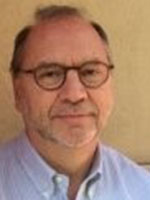
Global health and the HIV response
Peter Piot, United Kingdom
Peter Piot is the Director of the London School of Hygiene & Tropical Medicine, and the Handa Professor of Global Health. He was the founding Executive Director of UNAIDS and Under-Secretary-General of the United Nations (1995-2008).
A clinician and microbiologist by training, he co-discovered the Ebola virus in Zaire in 1976, and subsequently led pioneering research on HIV/AIDS, women’s health and infectious diseases in Africa. He has held academic positions at: the Institute of Tropical Medicine, Antwerp; the University of Nairobi; the University of Washington, Seattle; Imperial College London; and the College de France, Paris. He was a Senior Fellow at the Bill & Melinda Gates Foundation. He is a member of the US National Academy of Medicine, the National Academy of Medicine of France, and the Royal Academy of Medicine of his native Belgium, and a Fellow of the UK Academy of Medical Sciences and the Royal College of Physicians.
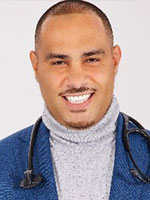
Making the treatment cascade work in vulnerable and key populations
David Malebranche, United States
David J Malebranche is a board-certified internal medicine physician and expert in men's and LGBT health, as well as the prevention and treatment of HIV and sexually transmitted infections. He is an Associate Professor of Medicine at Morehouse School of Medicine in Atlanta, Georgia, and is an experienced qualitative HIV behavioural prevention researcher who has completed several studies on sexual health among black men of diverse sexualities.
David has published more than 40 articles in leading medical and public health journals. He is known as a dynamic speaker worldwide and has appeared in documentaries on CNN, ABC News Primetime, TV One and Black Entertainment Television for his expertise on HIV in the black community. David served as a member of the President’s Advisory Council on HIV/AIDS (PACHA) from 2006 to 2008 and as the HIV/AIDS clinical expert on WebMD from 2010 to 2012. He also appears in the video series, #AsktheHIVDoc, which promotes education on sexual health topics for same gender-loving men. In 2015, he published his first book, a memoir about his father entitled Standing on His Shoulders.
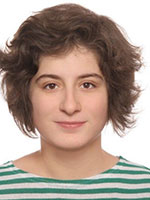
Leaving no one behind: A call to action
Yana Panfilova, Ukraine
Yana Panfilova heads the Board of Teenergizer, a union of adolescents and youth in Ukraine, and is a member of the Steering Committee of the Global Network of Young People living with HIV (Y+). Yana is the author of report, Key barriers to HIV testing for adolescents in EECA (Ukraine, Russia and Georgia).
Yana was born with HIV. “When I was 10, I discovered my HIV status,” she says. At 13, she spoke at the international Children and HIV conference on behalf of adolescents living with HIV in Eastern Europe and Central Asia. She says that as a result of her advocacy and speaking openly about her HIV status, the Ukraine Ministry of Health introduced disability benefits for HIV-positive children in June 2013. She also spoke at the expanded meeting of the Coordinating Committee of HIV Prevention in the Sverdlovsk region in Russia in December 2013. Shortly after this, the government took a decision that its structures would pay special attention to youth living with HIV.
Friday, 27 July 2018 - Building bridges for the next generation
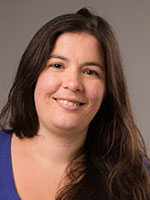
Understanding adolescent neurocognitive development in the context of HIV treatment, prevention and care
Anne-Lise Goddings, United Kingdom
Anne-Lise Goddings is a Clinical Lecturer at the University College London (UCL) Great Ormond Street Institute of Child Health in London, UK. She completed her medical degree at Cambridge University and UCL, and specialized in paediatric medicine in London where her interest in adolescent cognitive neuroscience originated from working with adolescents in a variety of clinical settings.
In 2015, Anne-Lise completed her PhD exploring how the hormonal and physical changes of puberty are associated with the developing structure and function of the human brain during adolescence, working with UCL Professors Sarah-Jayne Blakemore and Russell Viner. Her research focuses on how developmental changes in the brain during adolescence are related to behaviours that commonly emerge at this time, including decision making, risk taking and emotion processing; it uses a combination of behavioural, biological and magnetic resonance imaging methods. Anne-Lise has collaborated with research groups around the world and has published a series of peer-reviewed articles and book chapters on her research. She continues to work as a clinician alongside her research, the goal of which is to improve our understanding of the impact of illness and disease on the developing adolescent brain.
Growing into leadership for an efficient HIV response
O’Cindy Cynthia Samuels, Guyana
O’Cindy Cynthia Samuels, 24, is a Youth Ambassador from Guyana and a Field Officer working with the Guyana Sex Work Coalition. She was born in rural Berbice and grew up in Georgetown, the capital of Guyana. O’Cindy completed secondary school in 2012 and plans to study law. Meanwhile, she works with youth on advocacy to end AIDS.
“Due to my experience growing up and turning to sex work to better the life of my mom and younger siblings, I decided to share my experience and dedicate my time to helping youths, to guide them because our youths are so caught up with technology,” she says. “It’s like the future is dying and the world will end as they say the children are the future.”
Gautam Yadav, India
Gautam Yadav from India identifies as gay and “living positively with HIV”. He has dedicated himself to working hard for the establishment of an identity for LGBTQ communities. Gautam has served on the Board of the UNAIDS Youth Advisory Forum in Asia Pacific, and is a working core committee member of Youth Voices Count in Bangkok, Thailand.
Gautam is now working as Program Officer with The Humsafar Trust in Delhi. He is a Board member for Youth Lead in Bangkok, a key correspondent member of the International HIV/AIDS Alliance in Britain, a Steering Committee member of the Young People Living with HIV (Y+) Initiative of the Global Network of People Living with HIV in Amsterdam, and a Steering Committee member of the Men who have Sex with Men Global Forum (MSMGF).
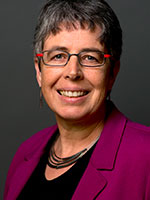
Back to basics: Sex rights and education
Reina Buijs, the Netherlands
Reina Buijs is Director General for International Cooperation in the Netherlands Ministry of Foreign Affairs. Before joining the ministry in 2001, she worked in public health in Africa and South America. In the late 1980s, Reina was Policy Advisor on nutrition in the Nicaragua Ministry of Health. In 1991, she did the same for the Provincial Medical Directors Office in Masvingo, Zimbabwe. Two years later, she returned to South America as a consultant on nutrition and health in Ecuador.
She advised on health and nutrition in the Netherlands Development Organisation in Ecuador, and then on health and gender in the Royal Embassy in Nicaragua. Her first post in the ministry in 2001 was as Senior Policy Advisor on Nutrition and Health, followed by heading its HIV/AIDS Division, where she was responsible for the policy on sexual and reproductive health and rights. Reina served as Ambassador to Nicaragua in 2011-13. She holds a Masters in Public Health from the Netherlands School of Public Health in Utrecht and a Masters in Human Nutrition from Wageningen University.
Special Presentation: MTV Shuga, South Africa
Georgia Arnold, United Kingdom
Georgia Arnold is Executive Director of the MTV Staying Alive Foundation (MTV SAF); a global charitable body whose mission is to empower young people with the knowledge, confidence and resources to make informed choices about their sexual and reproductive health and help prevent new HIV infections. As part of MTV SAF’s work, Ms. Arnold is Executive Producer of the multi award-winning MTV Shuga – a 360-degree mass-media HIV prevention campaign with a global reach of over 720 million households. MTV Shuga addresses sexual and reproductive health topics head-on, by fusing important sexual and reproductive messaging with hard-hitting storylines.
In addition, Ms Arnold is Senior Vice President of Social Responsibility at Viacom International Media Networks, and is responsible for developing social initiatives for the company’s portfolio of over two hundred TV channels and websites.
Stephanie Sandows, South Africa
Stephanie Sandows is an actor, casting director, youth advocate and social linguist. She was a leading character in MTV Shuga Down South, a 360 degree mass media campaign that uses the power of entertainment to generate positive sexual and reproductive health outcomes amongst young people. Stephanie played ‘Tsholo’, a young girl who faced violent abuse from her partner. Stephanie’s role in MTV Shuga: Down South has led her to be an activist for young women experiencing gender based violence across Africa. Her activism has been featured in leading South Africa press and has promoted discussion around GBV on social media. Stephanie holds an honours degree in Social Linguistics.
Given Stuurman, South Africa
Given Stuurman is an actor and youth advocate. Most recently, Given played ‘Reggie’ on MTV Shuga Down South, a 360 degree mass media campaign that uses the power of entertainment to generate positive sexual and reproductive health outcomes amongst young people. His character, ‘Reggie’ explores his masculinity and sexual identity as a young teen living in South Africa. Given’s role gave him an insight into perceptions around LGBTQ issues amongst young people in South Africa. As a result, Given has become a young thought leader and has made invaluable contributions to promoting positive discussions about LGBTQ issues in South Africa.